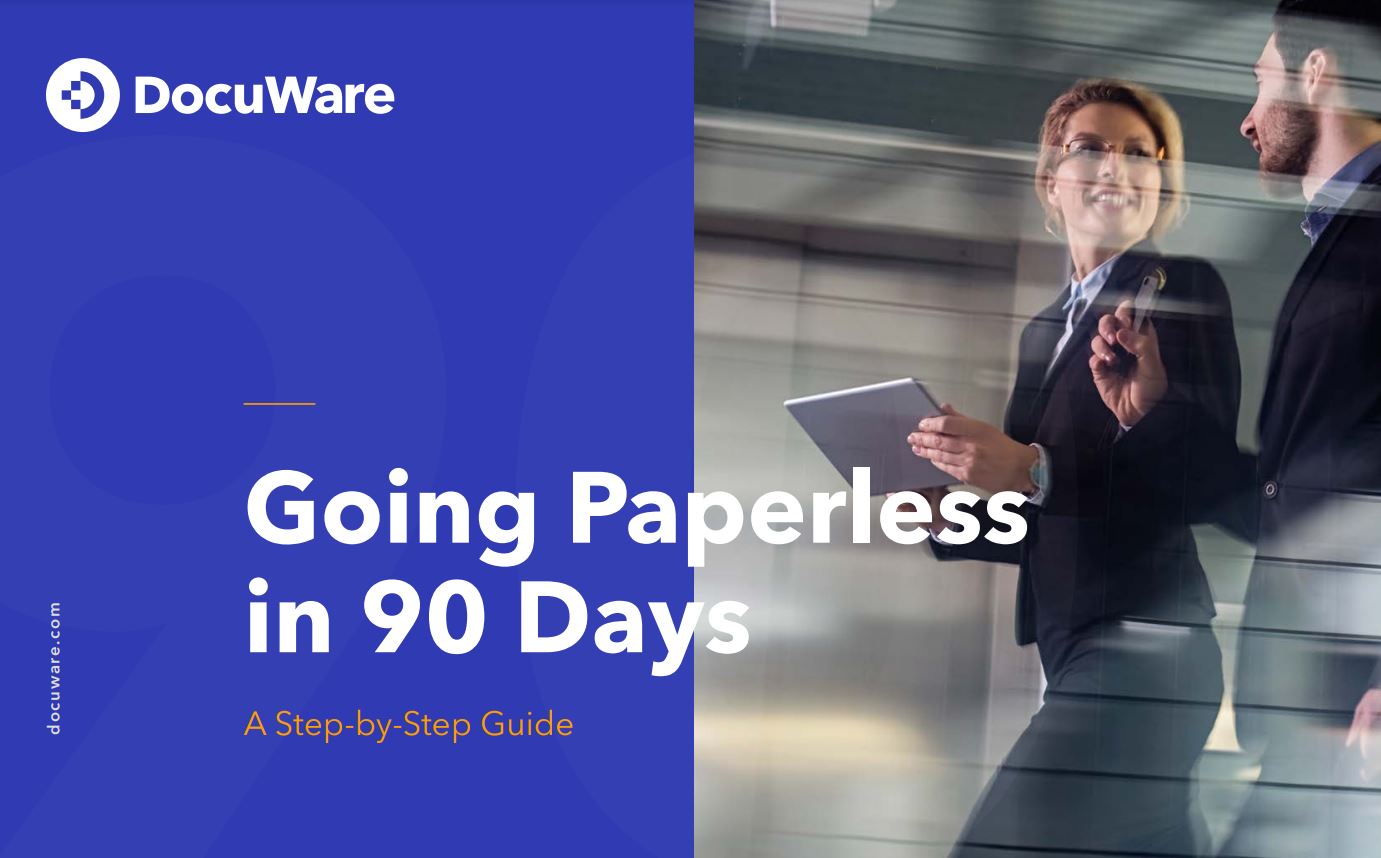Sponsored by iManage
Document management systems (DMS) in the AI era: How to choose the right solution to create a trusted foundation for your business
In the AI era, documents are no longer just records — they’re strategic assets. A modern DMS provides the secure, intelligent foundation firms need to harness AI, ensure compliance, and build lasting digital confidence

In the age of artificial intelligence (AI), where data drives decisions and speed defines success, the humble document has taken on new significance. For law firms and businesses alike, the ability to manage, secure, and intelligently leverage documents is no longer a back-office concern — it’s a strategic imperative.
At the heart of this transformation lies the Document Management System (DMS), a technology that has evolved from simple file storage into a cornerstone of digital confidence.
OPEX lists AI-powered document automation as one of the top trends in document management for 2025, explaining, “AI has become a pivotal force in transforming document management by automating repetitive tasks such as data entry, contract processing, compliance checks, and intelligent document search.”
As AI becomes more deeply embedded in legal and corporate workflows, choosing the right DMS is not just about operational efficiency. It’s about building a trusted foundation for innovation, compliance, and long-term resilience.
The evolution of the DMS
A DMS is software that stores, organizes, tracks, and manages digital documents. Traditional DMS platforms focus on:
- Centralized storage
- Version control
- Access permissions
- Search and retrieval
- Audit trails
But today’s DMS must go further. The modern DMS is no longer a passive repository. It is an active participant in the lifecycle of information. It captures documents from multiple sources — emails, scanners, mobile devices, collaboration platforms — and organizes them with precision. It applies metadata, enforces version control, and ensures that every document is accessible to the right people at the right time.
In the AI era, the stakes are higher. The DMS must do more than manage — it must empower. It must enable AI tools to analyze contracts, extract insights, and automate workflows with confidence. And it must do so without compromising security, privacy, or professional integrity.
For law firms, this challenge is particularly acute. Legal professionals deal with sensitive client information, complex regulatory requirements, and high volumes of documentation. A trusted DMS is essential not only for managing risk but for unlocking the full potential of AI. AI tools rely on clean, well-structured data to deliver accurate results. They identify patterns in case law, flag inconsistencies in contracts, and even predict litigation outcomes.
However, if the underlying data is fragmented, outdated, or insecure, AI becomes a liability. The wrong clause gets flagged. The wrong precedent gets applied. The wrong advice gets delivered. In high-stakes environments, that’s a risk no firm can afford.
How to choose the right DMS in the AI era
So how does one choose the right DMS in this new landscape? The answer begins with clarity of purpose. A law firm or business must first understand what it needs from its DMS — not just today, but in the future.
Is the goal to improve collaboration across teams and offices? To ensure compliance with data protection laws? To enable AI-powered document review and analytics? These objectives will shape the selection criteria and help distinguish between “nice-to-have” features and foundational capabilities.
Security is non-negotiable. With rising cyber threats and increasing regulatory scrutiny, a DMS must offer robust encryption, granular access controls, and comprehensive audit trails. It must integrate seamlessly with identity management systems and support multi-factor authentication (MFA).
Security alone is not enough, though. The DMS must also be intelligent. It should support advanced search capabilities, including semantic and contextual search. It should enable automated tagging and classification, reducing the burden on staff and improving data quality.
It should also be compatible with AI platforms, allowing for smooth integration and scalable innovation. A DMS must grow with the firm, accommodating new users, new practice areas, and new jurisdictions. It must support mobile access, remote collaboration, and cloud deployment. According to SecureScan, the benefits of a cloud-based DMS include accessibility, scalability, cost-effectiveness, enhanced security, and improved productivity.
It must also be agile enough to adapt to changing business models and resilient enough to withstand disruption. In short, it must be futureproof.
Perhaps the most important requirement is trust. A DMS is not just a piece of software — it is a relationship. Firms must trust that their DMS provider understands the legal and business context, respects professional standards, and is committed to a long-term partnership.
That trust is built through transparency, responsiveness, and a shared vision for ethical technology. It is reinforced by a track record of reliability, a commitment to data sovereignty, and a willingness to evolve with the needs of the profession.
The future of DMS: What’s next?
As AI evolves, expect DMS to evolve further, offering exciting new innovations such as:
- Conversational interfaces: Ask your DMS questions like “Show me all NDAs signed in Q2.”
- Predictive document management: AI will anticipate needs — surfacing relevant documents before you ask.
- Deeper analytics: Understand trends across documents, like recurring risks or negotiation patterns. “Integrating data analytics with document management is a powerful strategy for enhancing organizational efficiency, accuracy, and decision-making,” according to EOXS.
- Ethical AI: Systems will offer bias detection and fairness audits, especially in hiring or legal contexts.
The DMS of tomorrow won’t just store documents — it will be a strategic partner.
In the AI era, a DMS is more than a filing cabinet — it’s the backbone of your firm’s operations. Choosing the right solution means balancing intelligence, security, usability, and scalability.
With the right DMS, you’ll not only manage documents — you’ll unlock the full potential of DMS in the AI era.
Sign up today and you will receive a free copy of our Future Focus 2025 report - the leading guidance on AI, cybersecurity and other IT challenges as per 700+ senior executives

Lawrence Miller, CISSP, has worked in information security and technology management for more than 25 years.
He received his MBA in Supply Chain Management from Indiana University and has earned numerous technical and professional certifications throughout his career.
He is currently working as an IT security solutions consultant. He’s previously worked as the vice president of IT for a major Verizon reseller, director of IT and e-commerce for a retail merchandising company, and IT operations manager for a top 100 U.S. law firm.
-
 What is Microsoft Maia?
What is Microsoft Maia?Explainer Microsoft's in-house chip is planned to a core aspect of Microsoft Copilot and future Azure AI offerings
-
 If Satya Nadella wants us to take AI seriously, let’s forget about mass adoption and start with a return on investment for those already using it
If Satya Nadella wants us to take AI seriously, let’s forget about mass adoption and start with a return on investment for those already using itOpinion If Satya Nadella wants us to take AI seriously, let's start with ROI for businesses
-
 Going paperless in 90 days
Going paperless in 90 daysWhitepaper The three steps to quick and effective digitisation
-
 How NHS Bedfordshire is building a paperless hospital
How NHS Bedfordshire is building a paperless hospitalIn-depth Xerox has helped the Trust cut down its use of paper records, unlocking benefits for doctors and clinicians
-
 Five business benefits of Digital Transaction Management
Five business benefits of Digital Transaction ManagementIn-depth What is Digital Transaction Management and how can it help your business?
-
Sale to OpenText scared us, Documentum customer admits
News User feared acquisition growth strategy would come at the cost of innovation
-
 Compliance and complexity: How to stay on the right side of the law
Compliance and complexity: How to stay on the right side of the lawSponsored Document security is always important, but for regulated industries it's paramount.
